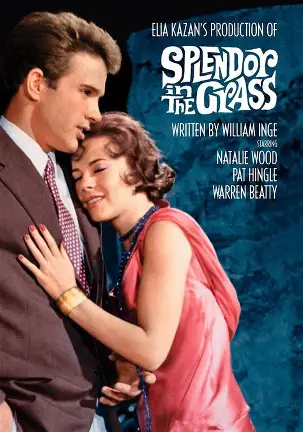
By Dr Rahim Said
A timeless film, a poem, and a reminder that beauty, once lost, still leaves light behind
Passing by the old Rex Theatre on Jalan Putra in Alor Star recently, I slowed down for a moment. The façade is faded now, the screen long dark, but for those of us who grew up in the 1960s, that cinema once held magic.
As I stood there, a wave of memory washed over me — of a film that shaped not only my youth but my way of looking at life: Splendour in the Grass.
The movie was released in 1961, but I think it only reached our local cinemas the following year. I was then in secondary school, still in my school uniform and brimming with curiosity about the world.
Going to the cinema in those days was an event — we dressed neatly, saved pocket money for a ticket, and waited eagerly for the lights to dim.
I had just begun studying English Literature, and when I saw the title Splendour in the Grass, I knew it was different. It wasn’t a typical Hollywood name full of glamour or adventure. It sounded poetic — and indeed, it was.
The title came from a poem by William Wordsworth, which sent some of us straight to the school library to find out what it meant.
What though the radiance which was once so bright
Be now for ever taken from my sight,
Though nothing can bring back the hour
Of splendour in the grass, of glory in the flower,
We will grieve not, rather find
Strength in what remains behind…
Those lines stayed with me through the years. I studied the poem again in Sixth Form, and once more during Freshman English in college. Each time, it felt as if Wordsworth was speaking directly to whatever stage of life I was in.
The film itself — starring Natalie Wood and Warren Beatty — told the story of two young lovers in 1920s small-town America. Their love was intense, pure, but also fragile. Caught in a world bound by strict moral expectations, they were pulled apart by family pressure and society’s fear of impropriety.
When they meet again years later, both are older, more guarded, and quietly broken. The youthful “splendour” that once defined their love has faded — yet what remains is something softer, wiser. It is the bittersweet acceptance that life moves on.
That was, in essence, Wordsworth’s message too.
Though we can never bring back the radiance of youth, we can find strength in what remains — in memory, in understanding, and in the quiet resilience that comes with age.
When I went to college, I often looked for that same connection — people who had felt what the film tried to say. I found a few. We’d talk about Deanie and Bud as though they were people we once knew.
Years later, back in Malaysia, I met an English Literature major who adored the same film. She would speak about it as if it were a mirror to our own lives — of how love, expectation, and loss are not uniquely American but part of every human story.
And perhaps that’s why Splendour in the Grass still lingers in my heart. It isn’t just a love story. It’s a reflection of how time changes us — how the things we once thought we’d never survive somehow become the very memories that give us strength.
So, as I stood before the shuttered Rex Theatre that day, I found myself smiling.
Because even though that hour of splendour has long passed, the feeling — the lesson — remains.
As Wordsworth wrote more than two centuries ago:
“We will grieve not, rather find
Strength in what remains behind“. And indeed, we do.
WE